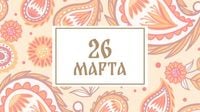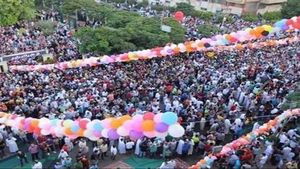On March 26, 2025, Orthodox Christians honor the memory of St. Nicephorus of Constantinople, a significant historical figure known for his staunch defense of icon veneration during the VIII-IX centuries. Celebrated as Nikiforov Day, this date not only marks a religious observance but also reflects cultural beliefs and folk traditions associated with the awakening of nature in early spring.
Traditionally, people believe that on this day, bears emerge from their hibernation as the ice and snow begin to melt. This often leads to a folk warning against venturing into the forest alone—considered dangerous because of the potential encounters with the awakened bears. As one saying reflects, it is advised, “A bad sign on March 26 is to walk in the forest alone,” as forests become realms of uncertainty. Observers assume bears represent not just wildlife, but the essence of the forest spirit itself.
In addition to animal behaviors, weather patterns on this day are also scrutinized by folk observers, with specific predictions emerging from natural signs. For instance, if rooks gather in large flocks and croak loudly in the evening, it is seen as a sign of clear weather ahead. In contrast, fog on March 26 portends a rainy summer, while an early thunderstorm accompanied by a northern wind points to a chillier spring. Conversely, if a southern or eastern wind prevails during the first thunderstorm of the season, people brace for a warm summer.
Another common observation relates to the movements of geese. Bathing geese signify that warmer days are on the horizon, whereas geese diving can indicate impending rain. Additionally, if a black grouse is spotted hiding in the snow, it suggests that colder temperatures may not be entirely gone—an unfortunate omen for farmers hoping for an early spring.
This day is rich with prescriptive actions and prohibitions based on centuries-old beliefs. Among the recommended activities is a visit to the bathhouse, which is thought to enhance health and well-being—“It is believed that hygienic procedures in this day contribute to health and wellness.” This heightens the traditional practice of engaging in personal cleansing rituals for health benefits.
However, some actions are strongly discouraged on Nikiforov Day. Cutting trees is ominously viewed as a precursor to misfortune, and quarrels or conflicts are also considered unfavorable. Additionally, financial prudence is stressed; it is not advised to borrow money on this day, as it could lead to difficulty repaying. Traditional wisdom suggests, “Many believe that borrowing on this day can result in family disputes.”
Moreover, dream interpretations hold significant importance on this day, as it’s thought that dreams can have prophetic qualities. Citizens are encouraged to remember their dreams as they may contain messages that are important for the days ahead.
Overall, numerous symbolic beliefs characterize March 26, making Nikiforov Day a unique blend of spiritual observance and cultural practices deeply rooted in natural observations. Many Russians will strive to perform rituals that embrace the seasonal change, honoring the memories of their ancestors through the lens of folk traditions, all while keenly observing nature's signs that foretell the immediate future.
As the day unfolds, cultural practices reflect not just a connection to the divine, but also to nature and its cycles, showcasing a wide array of human experiences bridging spirituality and the earthly realm.






